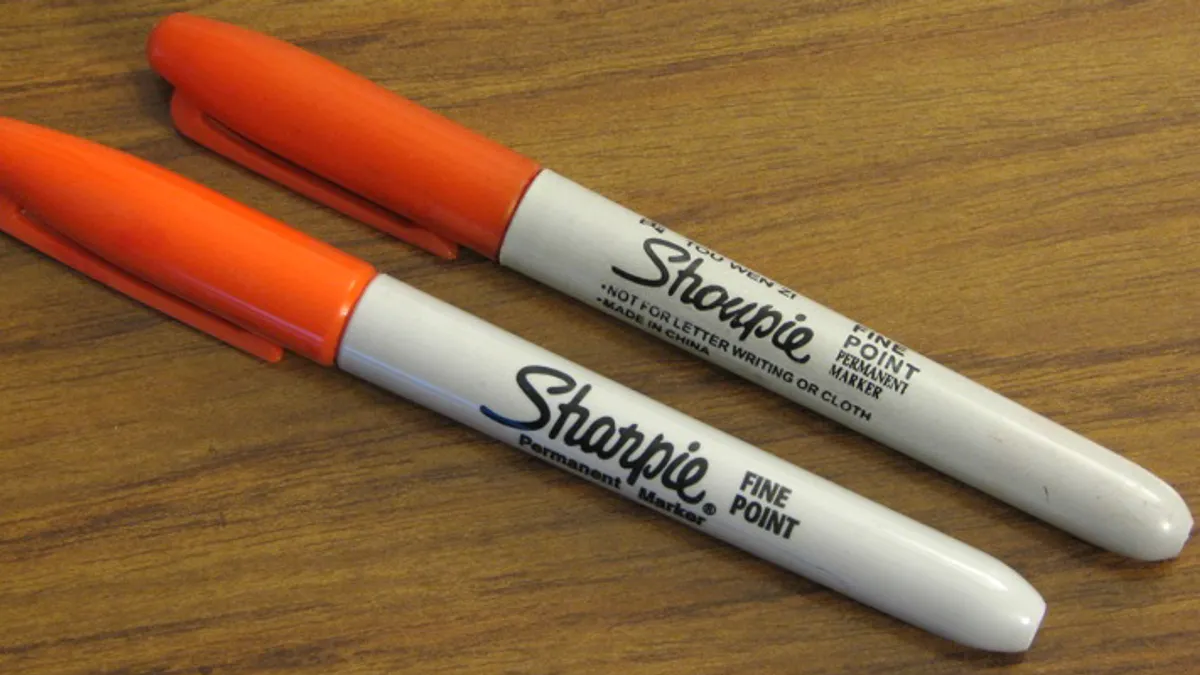Dive Brief:
- Domestic fulfillment centers and online third-party marketplaces have emerged as key distribution points for counterfeit or illicit goods entering the U.S., according to a report proposing targeted regulatory changes released by the Department of Homeland Security Friday.
- DHS will pursue new regulations enabling Customs and Border Protection (CBP) to, "treat domestic warehouses and fulfillment centers as the ultimate consignee for any good that has not been sold to a specific consumer at the time of its importation." Facilities owners would be responsible for proactively notifying CBP, complying with CBP orders and destroying such goods, if found. Noncompliance could trigger legal action.
- The report also recommends establishing private sector best practices, sharing resources, third-party seller identification standards and requiring country of origin labels for products sold online (currently only mandated for items sold in physical stores) to improve detection of counterfeit items before they're sold.
Dive Insight:
Combating the rise in counterfeit items has been stymied by growth in international small parcel volumes (largely due to e-commerce purchases), a lack of platform standards around accurately identifying and punishing third party operators selling the goods and a need for consumer and private sector education on best practices for identifying and removing these items from the supply chain.
.@CBPMarkMorgan joined Dr. Navarro, @DHS_Wolf & @ICEgov Acting Director Albence to announce the Combating Trafficking in Counterfeit and Pirated Goods action plan. These strong actions can substantially reduce trafficking while promoting a safer America: https://t.co/q3w9hNIxTc pic.twitter.com/0nZty6uIkw
— CBP (@CBP) January 25, 2020
In addition to causing consumer harm, "Counterfeit goods displaced roughly half a trillion dollars of global sales of legitimate companies in 2013 and [Frontier Economics] forecasts this displacement to reach $1 to $1.2 trillion by 2022," according to a Frontier Economics study cited in the report.
"The DHS report is an important step in the right direction for IP rights holders around the world," Laura Urquizu, CEO of Red Points, a technology company focused on helping retailers eliminate counterfeits, told Supply Chain Dive via email. "Counterfeit tactics and brand abuse are ever-changing, it would be a mistake for IP holders to think that their brand protection efforts are fulfilled by solely implementing their anti-counterfeit strategy in the mainstream platforms."
A growing problem, Urquizu said, is the exploitation of niche marketplaces on social media and mobile apps that don't have built-in protection against fraudulent sellers.
Despite the current reporting and terms of service mechanisms in place on third-party platforms like Instagram, Amazon and Alibaba, the burden of identifying illicit goods and sellers falls largely on customers, the report found.
Traditional methods such as leaving negative reviews or shutting down seller profiles are increasingly ineffective as sellers often set up multiple digital storefronts, distribute counterfeits and legitimate goods across a variety of physical and digital channels, and purchase fake positive reviews online to avoid detection.
The proliferation of counterfeit sellers online corresponds to the increase in illicit goods warehouse operators are exposed to in their facilities, the report found. DHS' proposed regulations would shift liability further up the supply chain from the end-user, or the retailer, to the fulfillment operations that ship goods for online marketplaces.
While DHS made it clear it is continuing its efforts to hold platforms such as Amazon accountable for the sale of counterfeit goods, logistically, once items are spread across multiple websites they are harder to track and police. Targeting shipments when they remain relatively concentrated in fulfillment centers could help federal agencies tackle the problem closer to its source.
In parallel to these efforts, CBP has been operating a Section 321 Data Pilot program to collect enhanced parcel data from shippers (above what is currently required by law) in advance to help expedite the flow of legitimate parcels, leaving more time for enhanced screening of at-risk items. Amazon, BoxC Logistics, DHL, eBay, FedEx, PreClear, UPS, XB Fulfillment and Zulily are participants.
The DHS report says the results of the 321 Data Pilot will be examined after it concludes in 2021 to determine whether the practice will be expanded.













